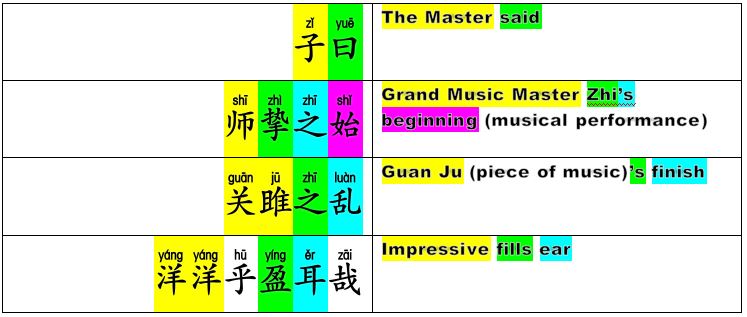Analects 8.21
Original Text:
子曰禹吾无间然矣菲饮食而致孝乎鬼神恶衣服而致美乎黻冕卑宫室而尽力乎沟洫禹吾无间然矣
Translation:

Other Translations:
The Master said, “I can find no fault with [the legendary sage-king] Yu. He subsisted on meager rations, and yet was lavishly filial in his offerings to the ancestral spirits. His everyday clothes were shabby, but his ceremonial headdress and cap were exceedingly fine. He lived in a mean hovel, expending all of his energies on the construction of drainage ditches and canals. I can find no fault with Yu.”
Confucius, & Slingerland, E. (2003). Analects: With selections from traditional commentaries. Hackett Publishing.
The Master said, I can find no fault with Yu. Sparing in his food and drink, he yet served the spirits and gods with utmost filial devotion. His ordinary robes were shabby, but his sacrificial aprons and caps were of the utmost beauty. He lived in lowly rooms and halls, devoting his entire energy to the opening of irrigation ditches and channels. I can find no fault with Yu.
Confucius, & Watson, B. (2007). The Analects of Confucius. Columbia University Press.











